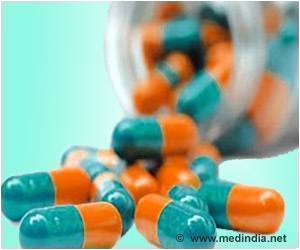Combination of aspirin and the anti-platelet drug dipyridamole may significantly reduce blockages and extend the useful life of new artery-vein access grafts used for hemodialysis
A study by the Dialysis Access Consortium (DAC) has revealed that a combination of aspirin and the anti-platelet drug dipyridamole may significantly reduce blockages and extend the useful life of new artery-vein access grafts used for hemodialysis.
The study, supported by the National Institute of Diabetes and Digestive and Kidney Diseases (NIDDK), part of the National Institutes of Health, will be published in the May 21, 2009, New England Journal of Medicine.Artery-vein access grafts, called arteriovenous (AV) grafts, fail most often due to narrowing of blood vessels (stenosis) at the graft site and subsequent clotting, which block the flow of blood. A blocked graft cannot be used for dialysis and is a major cause of worsening health in dialysis patients.
The DAC trial found that the combination treatment decreased the rate of loss of primary unassisted graft patency – the useful life of a graft before it becomes blocked the first time – by 18 percent and the rate of developing significant stenosis by 28 percent, compared to placebo. Previous smaller clinical trials of anti-clotting therapies failed to show that these drugs improve AV graft patency or that they could be used safely in dialysis patients.
''This drug combination provides a modest but important new therapy to keep AV grafts in good working order so patients can get the dialysis they need,'' said NIDDK Director Griffin P. Rodgers, M.D. ''But clearly more research is needed to extend the useful life of AV grafts.''
A total of 649 participants with new AV grafts were recruited for the trial at 13 clinical sites in the United States and were randomly assigned to treatment with dipyridamole plus aspirin or to a placebo. The trial took place over a period of five years.
''Our trial results show that we now have a drug therapy that significantly prolongs the viability of AV grafts,'' said Bradley S. Dixon, M.D., of the University of Iowa College of Medicine, Iowa City, and lead author of the study. ''This is an important step forward as we proceed to develop therapies to improve dialysis patients' quality of life.''
Advertisement
Source-Eurekalert
RAS















